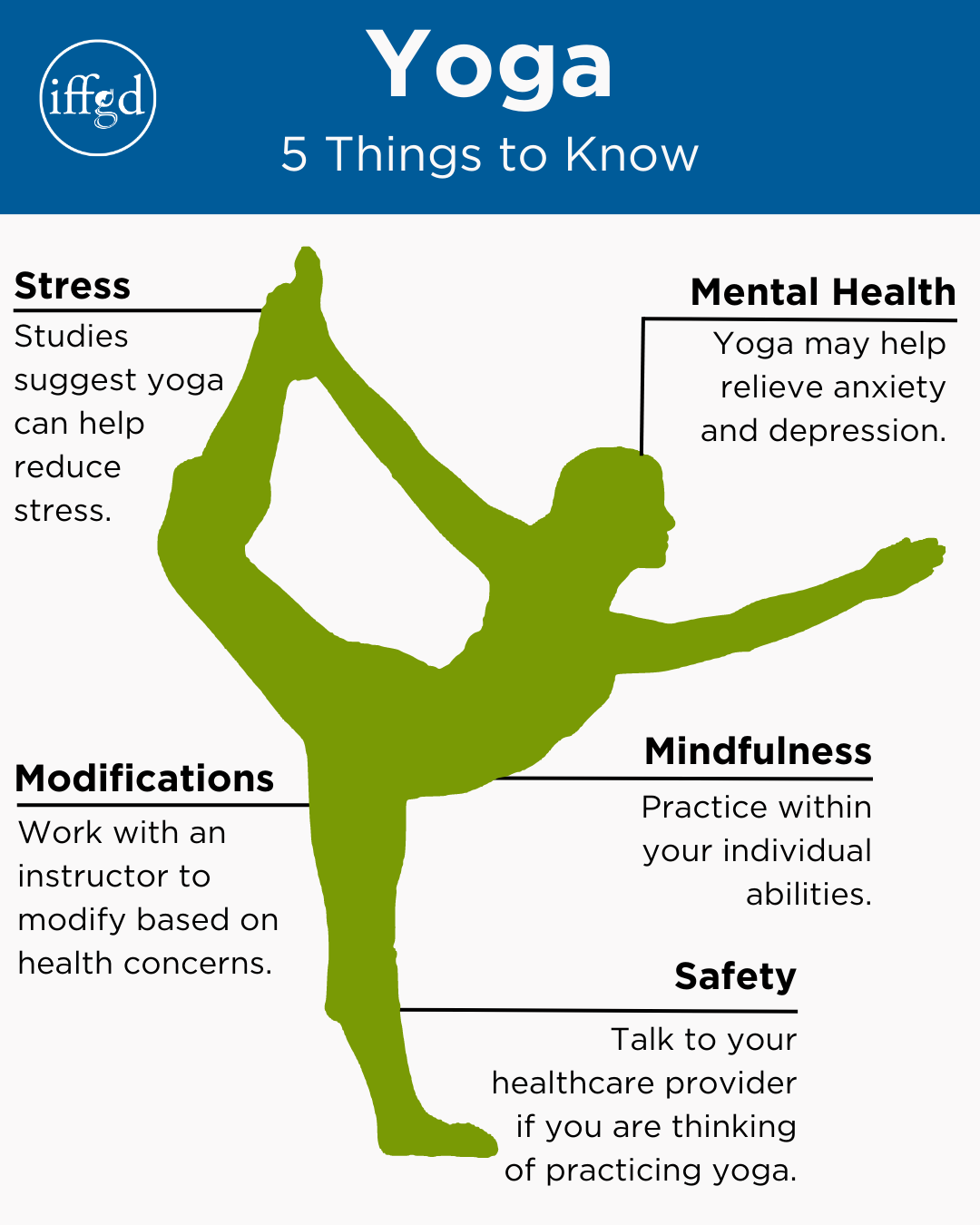Yoga typically combines physical postures, breathing exercises, and meditation or relaxation. Evidence suggests that yoga may be helpful for anxiety associated with medical conditions, stressful events, or symptoms of depression.
Although there’s been a lot of research on the health effects of yoga, many studies have included only small numbers of people and haven’t been of high quality. Therefore we can only say that yoga has shown promise for particular health uses, not that it’s been proven to help.
If you’re thinking about practicing yoga, here are 5 things you should know:
- Studies suggest that yoga may be beneficial for a number of conditions, including pain. Recent studies in people with chronic low-back pain suggest that a carefully adapted set of yoga poses can help reduce pain and improve function. Other studies also suggest that practicing yoga (as well as other forms of regular exercise) might have other health benefits such as reducing heart rate and blood pressure and may also help relieve anxiety and depression.
- Yoga may have benefits for healthy people. Studies show that yoga can help reduce stress, enhance mental well-being, and improve sleep. Research suggests that yoga is not helpful for asthma, and studies looking at yoga and arthritis have had mixed results.
- Yoga is generally considered to be safe in healthy people when practiced appropriately. However, people with high blood pressure, glaucoma, or sciatica, and women who are pregnant should modify or avoid some yoga poses.
- Practice safely and mindfully. Everyone’s body is different, and yoga postures should be modified based on individual abilities. Carefully selecting an instructor who is experienced and is attentive to your needs is an important step toward helping you practice yoga safely. Inform your instructor about any medical issues you have, and ask about the physical demands of yoga.
- Talk to your health care providers about any complementary health practices you use, including yoga. If you’re thinking about practicing yoga, also be sure to talk to your health care providers. Give them a full picture of what you do to manage your health. This will help ensure coordinated and safe care.
Learn more about Complimentary and Alternative Treatments
Adapted from The National Center for Complementary and Alternative Medicine’s “5 Things You Should Know About Yoga”. http://nccam.nih.gov/health/tips/yoga. (Accessed 05/16/2022). This text of this article is not copyrighted.

